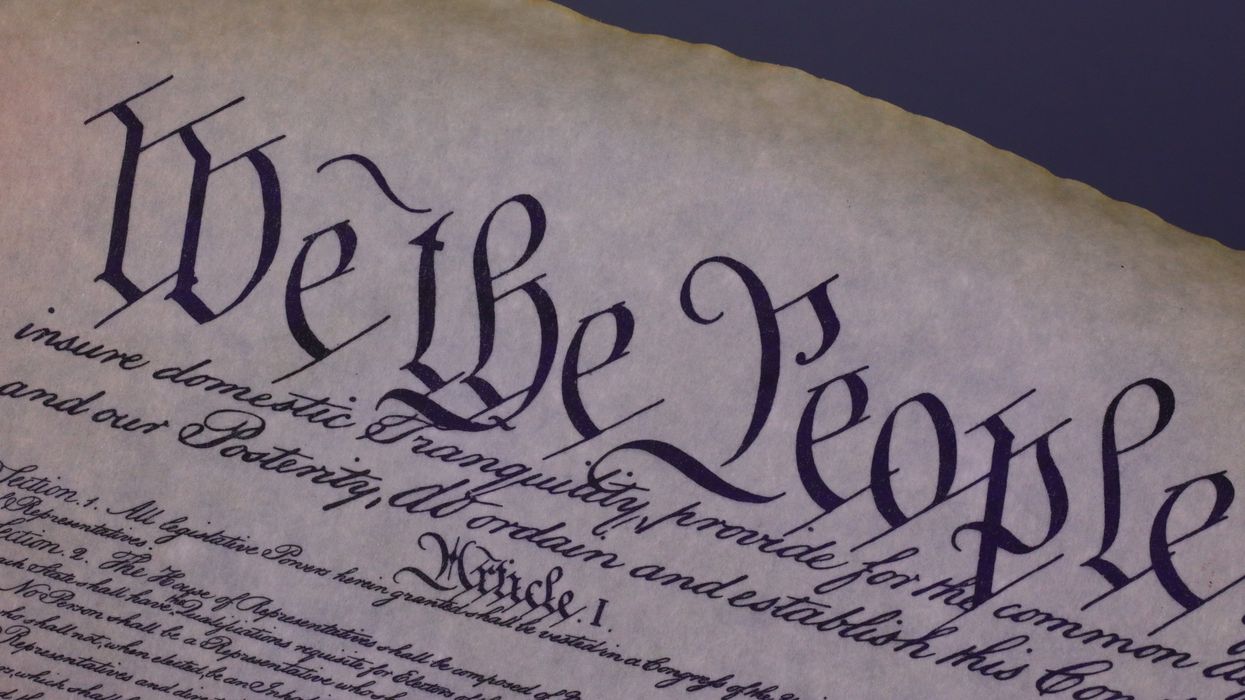Every September 17, Americans mark Constitution Day—the anniversary of the signing of our nation’s foundational charter in 1787. The day is often commemorated with classroom lessons and speaking events, but it is more than a ceremonial anniversary. It is an invitation to ask: What does it mean to live under a constitution that was designed as a charge for each generation to study, debate, and uphold its principles? This year, as we look toward the semiquincentennial of our nation in 2026, the question feels especially urgent.
The decade between 1776 and 1787 was defined by a period of bold and intentional nation and national identity building. In that time, the United States declared independence, crafted its first national government, won a war to make their independence a reality, threw out the first government when it failed, and forged a new federal government to lead the nation. We stand at a similar inflection point. The coming decade, from the nation’s semiquincentennial in 2026 to the Constitution’s in 2037, offers a parallel opportunity to reimagine and reinvigorate our American civic culture. Amid the challenges we face today, there’s an opportunity to study, reflect, and prepare to write the next chapters in our American story—it is as much about the past 250 years, as it is about the next 250 years. It will require the same kind of audacious commitment to building for the future that was present at the nation’s outset.
The real founding legacy is one of innovation and improvisation. The Articles of Confederation, the country’s first governance charter, went into effect in 1781. Just six years later, delegates gathered in Philadelphia for a Constitutional Convention. They threw out the Articles, drafted a new constitution, and sent it to the states for ratification. In 1789, less than twelve months after the Constitution was ratified, Congress passed the Bill of Rights, adding ten amendments to the original document. The states approved several additional amendments over the coming decades to close loopholes in the original text or clarify ambiguous language.
The framers never believed they were creating a perfect union, but a more perfect one. They expected future generations to take up the mantle of improvement. Many generations embraced the challenge. The post-Civil War amendments abolished slavery, the 19th Amendment extended suffrage to white women, and the Civil Rights Acts of the 1960s extended suffrage to people of color. The true founding legacy—that every generation has the obligation to make the nation more perfect for subsequent generations—is one that both expects and invites thoughtful, informed participation.
As we prepare to mark these uniquely American milestones, we must not treat them as nostalgic, ceremonial mile-markers, but as civic catalysts.
If we treat the semiquincentennial as a season of civic renewal—an American “civic renaissance”—we can make civic learning as fundamental as literacy and math. Without it, democracy withers. Just as we teach every child to read, we must teach every child to lead. As U.S. Supreme Court Justice Louis Brandeis famously wrote, “[t]he most important political office is that of the private citizen.” To claim that mantle, Americans of all ages must see their role as citizen as central to their daily lives. Civics needs to feel real and alive, and relevant at all phases of a person’s life—from pre-K to grey. It is not only the essential work of our nation’s schools, but also of parents, grandparents, and caregivers to instill civic knowledge and virtue in our nation’s young people. We must also make constitutional engagement a valued public ritual, model civil discourse, invest in civic educators inside and outside the classroom, and protect and celebrate civic spaces like museums, libraries, and historical sites. Reviving constitutional culture means teaching it, practicing it, celebrating it, and modeling it—together, across divides, and for our entire lifespans.
Our organizations, the National Constitution Center and Mount Vernon, as well as other museums, historic sites, and civic education groups, through innovative digital resources, public programs, and even bolder interventions, are leading the charge to redefine for millions of Americans what it means to be a thoughtful, engaged citizen.
As we prepare to celebrate 250 years of independence, the question is not only how we will honor the past, but how we will write our next chapters together?
Lindsay Chervinsky is the presidential historian and Executive Director of the George Washington Presidential Library at Mount Vernon.
Julie Silverbrook is Vice President of Civic Education at the National Constitution Center.



















Trump & Hegseth gave Mark Kelly a huge 2028 gift